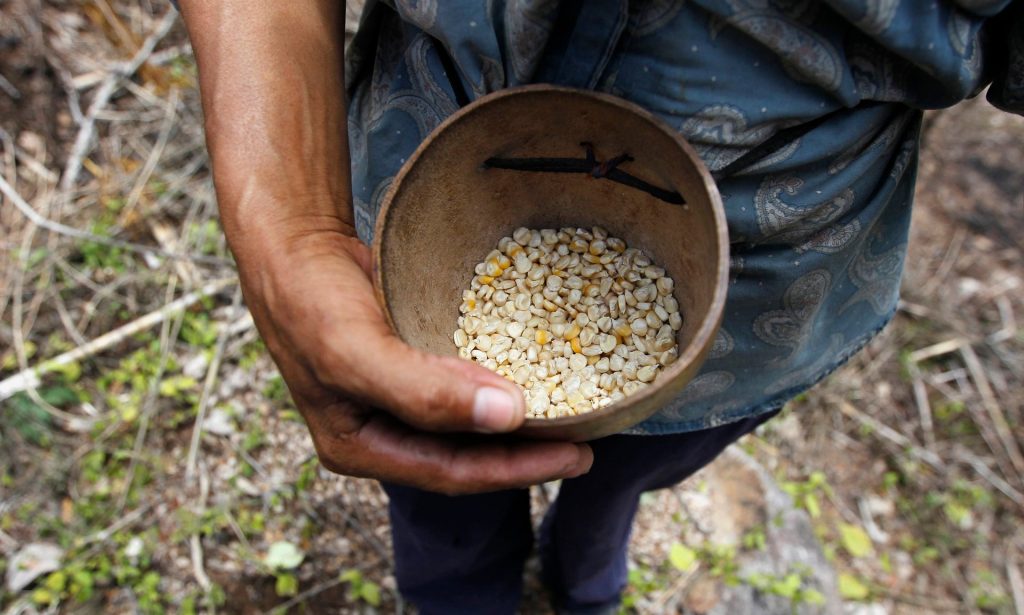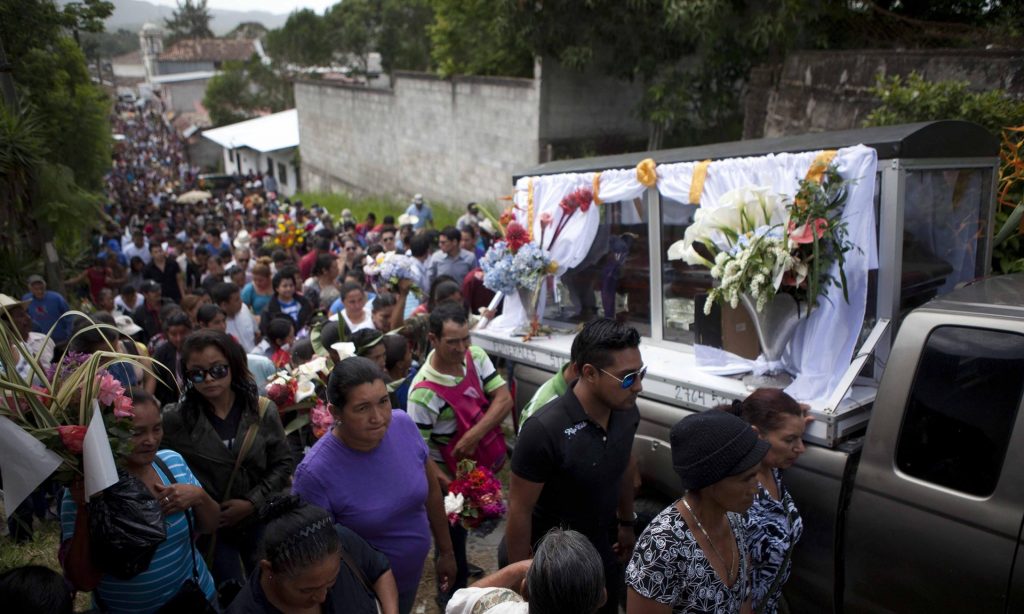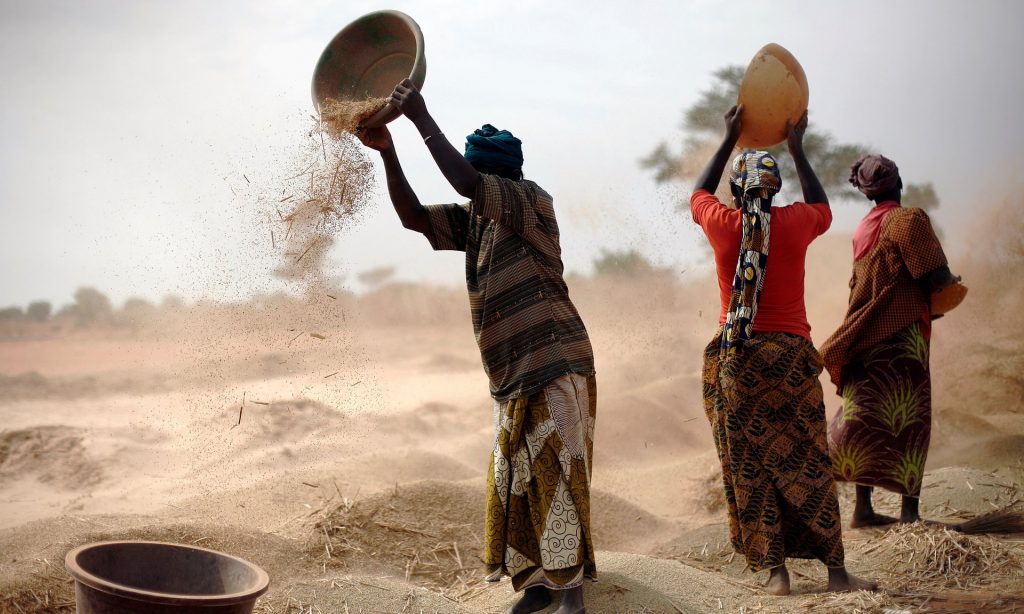
Photograph: Jorge Cabrera/Reuters
While US NGOs erupted in near-giddy applause last week, celebrating the passage through Congress of the Global Food Security Act of 2016, peasant communities in Honduras and land rights activists around the world mourned the death of environmentalist Lesbia Yaneth Urquía, whose body was found in a rubbish dump 160km west of the capital, Tegucigalpa.
The act, versions of which had been debated for years, makes food and agriculture development a US “national security” priority and calls for a new whole-of-government strategy to tackle global hunger. It authorises billions of dollars in funding and was hailed by NGOs from Save the Children to Care as a major victory and historic step. Barack Obama described it as gamechanging.
Grand words, indeed – but vague as well; a description that could apply to much of the act itself, which is filled with development buzzwords: monitoring and evaluation, coherence, coordination, “platforms for regular consultation and collaboration”, and particular support for female farmers. These are, of course, good and important concepts. But there are notable omissions, too.
Climate change is not referenced in the document, although it does mention building “resilience” to natural disasters. Property rights are name-checked, but human rights are not. This is critical given the context, where small-scale farmers globally are on the frontline of struggles over control of land, seeds, and food systems in a warming world.
In Honduras – which received $80m of US aid in 2014 – Urquía’s murder followed that of campaigner Berta Cáceras, killed in March by armed men who broke into her home and shot her dead. Both women had been prominent opponents of large-scale land deals and hydroelectric projects that they said threaten the food and water supplies of local communities.
The Council of Indigenous Peoples of Honduras (Copinh), founded by Cáceres, described Urquía’s death as “a political femicide that tries to silence the voices of women with the courage and bravery to defend their rights”.
Honduras is one of the most dangerous places to be an activist. According to the watchdog Global Witness, at least 109 people have been killed since 2010 for opposing dams, mining, logging and agriculture projects.
But threats and violence against those who dare to challenge powerful corporations and authorities intent on sweeping them aside are not unique to the central American country. They are a global phenomenon despite repeated international recognition of how important it is to support small-scale farming.

Photograph: Gustavo Amador/EPA
The Congressional Budget Office estimates that implementing the food security act (which must be signed by the president before becoming law) will cost $7.3bn (£5.6bn) over the 2017-21 period, and that the Feed the Future initiative will be a primary vehicle through which progress is pursued.
Launched in 2010 by President Obama – who came to office in the wake of global food price crises that prompted riots and dire warnings of millions pushed into poverty – Feed the Future partners developing country governments and companies including Monsanto and PepsiCo to boost agriculture production and market-oriented development.
It too has been criticised for missing opportunities to support small-scale farmers in claiming their rights. Last year, an Oxfam America report warned that it treated farmers as “passive recipients” engaged in projects only after decisions are made. It said the initiative had helped build technical capacities and skills, but that in many cases projects tended to benefit already better-off communities.
Focusing on increasing productivity could boost overall food production at the national level, it warned, but “may fail to address food insecurity problems among the hungry”.
Obama is clearly hoping to make food and agriculture a legacy issue for his administration. But without a clear and central vision committed to supporting human rights, US aid-funded initiatives risk repeating the same mistakes well-intentioned elites have made for decades.
Amartya Sen famously made the point that food crises are too often man-made and that famine is less likely in an independent, democratic country with a free press. The international peasant’s movement La Via Campesina has similarly put questions of power and control at the centre of its food sovereignty concept, which focuses on how food is produced and distributed, and – crucially – who decides.

Photograph: Jerome Delay/AP
The US act, once passed into law, will require the president to coordinate and articulate a cross-government strategy by 1 October. This strategy must put clear commitments to support poor and marginalised communities fighting for their rights at its very core. The act does nod in this direction – it mentions helping small-scale producers increase their “bargaining power” for example – but this must be strengthened and followed through.
The blood-drenched example of Honduras, which is already a Feed the Future partner country, should make it clear that elevating food and agriculture to priority issues is not, on its own, enough. Similarly, raising the profile of female farmers by explicitly referencing them in policy documents is far from a sufficient response to the ongoing and violent persecution of activists like Cáceres and Urquía.
